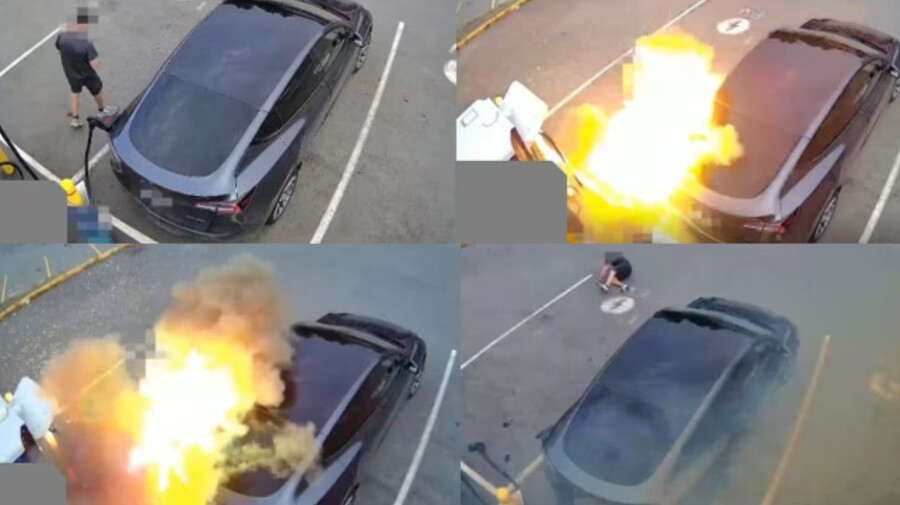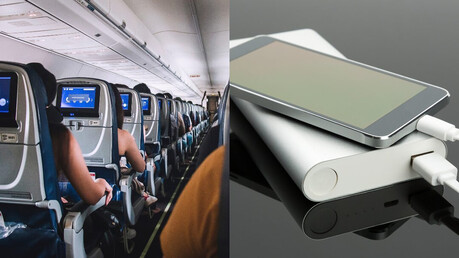
HOPE, BRITISH COLUMBIA — A Tesla driver was violently thrown to the ground and injured in a high-voltage electrical explosion while attempting to charge his vehicle at a public fast-charging station in Hope, British Columbia. The dramatic incident, captured on video, has rapidly spread across Canada and highlights the severe dangers associated with using uncertified electric vehicle (EV) charging accessories.
The accident, which occurred in August 2024, involved a male driver using an unofficial third-party adapter—manufactured and sold by Montreal-based A2Z EV—to connect his Tesla to a non-Tesla DC fast-charging station. Moments after plugging in, a powerful "arc flash"—a high-voltage electrical explosion—erupted, sending a massive fireball skyward and knocking the driver back several feet. A passenger, believed to be his spouse, was seen rushing out of the vehicle to assist the man, who sustained minor scrapes and abrasions.
An investigation by Technical Safety B.C. (TSBC) concluded that the explosion was triggered by a chain of events, starting with an internal short circuit within the DC fast charger. This malfunction caused an "abnormal voltage" to be delivered to the adapter, which then experienced a catastrophic internal arc fault and explosion. The blast severely damaged the adapter, the vehicle's charge port, and components of the charging station.
The TSBC report noted that the adapter in question, the A2Z EV unit, was not certified for use in Canada and lacked a recognized certification mark. Despite the lack of certification, the driver told investigators he had used the adapter without incident on approximately 50 previous occasions.
While the TSBC pointed to the unofficial adapter's failure under abnormal voltage conditions, A2Z EV conducted its own internal investigation, stating that a ground fault originating from the charging station itself was the fundamental cause of the explosion.
The incident serves as a stark warning to EV owners about the critical importance of using only manufacturer-approved or officially certified charging equipment. Authorities have emphasized that unapproved accessories have not been tested against rigorous safety standards, underscoring the real-world consequences of compromising electrical safety. New Canadian safety standards for such adapters were only established in early 2025, which further complicated the status of the adapter at the time of the sale and incident.
[Copyright (c) Global Economic Times. All Rights Reserved.]





























